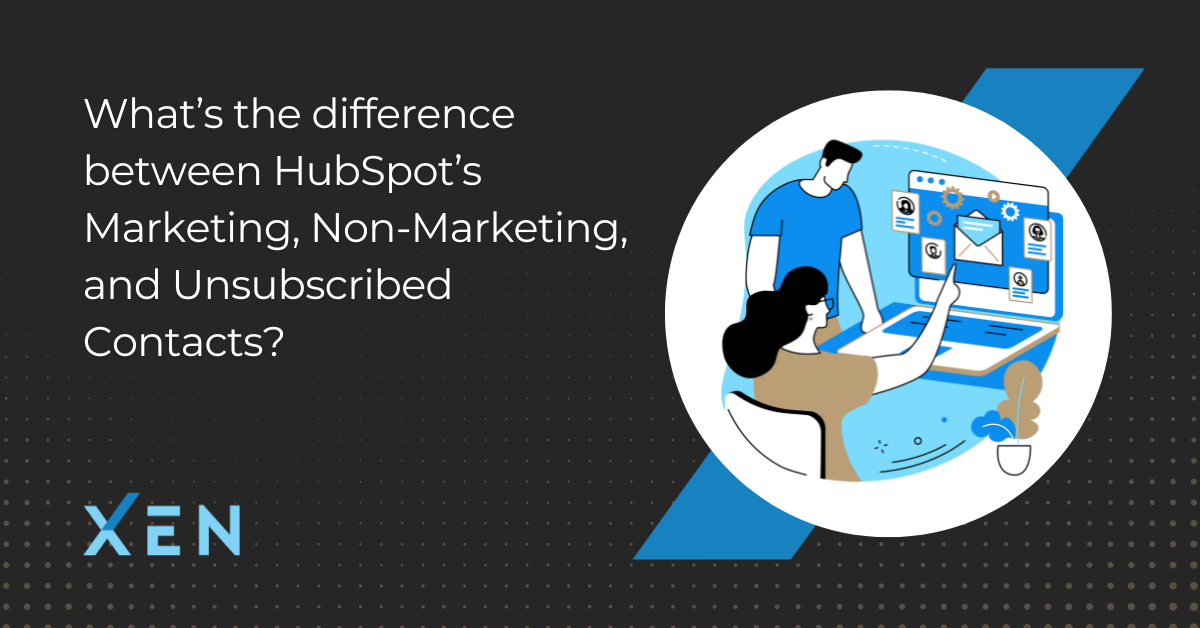Episode 241: The one with the Kevin Bacon animated gif in it
Welcome to HubShots Episode 241: The one with the Kevin Bacon animated gif in it This edition we dive into:
If you're new to HubSpot, we guide you on where to start, how to do it right, and train you to make the most of the platform.
Review your HubSpot portal to uncover issues, spot growth opportunities, and ensure you're maximising its potential.
Unlock business growth with automation and attribution. Implement best practices and execute marketing campaigns.
HubSpot On-Demand
HubSpot Training
HubSpot Websites
HubSpot Campaigns
HubSpot Optimisation
The EU's General Data Protection Regulation (GDPR) will be in affect as of 25th May 2018.
With the upcoming roll out of these new regulations, marketing automation systems everywhere have been sending out notifications to their users to inform them about the changes and how they will affect the EU data an organisation possesses and uses.
In this article, we'll be using HubSpot as an example for how you should prepare for the new EU data regulations. If you don't use HubSpot, the information in this article still applies to any marketing automation systems, or any system that collects data from EU citizens. We recommend you find information from your specific platform/s to ensure you know where you stand for the GDPR.
HubSpot recently sent out an email to its users concerning changes to how EU citizen data will be regulated on the platform.
The email states:
As of May 25th, all organisations working with the data of EU citizens will need to be GDPR (General Data Protection Regulation) compliant.
If you received HubSpot's email, or an email from other marketing automation systems or ad platforms, and you're not sure what to make of it, don't have time to read up on GDPR compliance or you're just not sure if it affects you or not, we've consolidated the most important information in this post. We'll lay out exactly what you need to know about GDPR and provide some recommendations for how to proceed with your EU data (if you have any).

GDPR stands for General Data Protection Regulation. It's the new European standard of data protection and it will be rolling out on the 25th May 2018.
HubSpot explains here:
"The GDPR (General Data Protection Regulation) is a new EU Regulation which will replace the 1995 EU Data Protection Directive (DPD) to significantly enhance the protection of the personal data of EU citizens and increase the obligations on organisations who collect or process personal data."
The GDPR applies to any business that controls or processes data of EU citizens (aka not just within the EU). If you're an Australian business collecting or using data about EU citizens, or if you're not sure, continue reading.
The full official text of the GDPR can be found here.
HubSpot has highlighted the most important changes that could affect users:
HubSpot's GDPR compliance overview has more information about the key changes associated with the GDPR.
The EU has already had data protection legislation for over two decades. The GDPR is just a replacement that builds on and enhances the current rules (called the Data Protection Directive).
With these changes, HubSpot will need to ensure their own practices are compliant with the new legislation. Other companies are doing this too. Both Facebook and Google have made commitments to making their platforms GDPR compliant. HubSpot is working on new product features (some have already been rolled out) to help users understand GDPR compliance and make sure the platform is as GDPR compliant as possible.
HubSpot will be undergoing some changes in these areas:
You can find HubSpot's Product Roadmap for the GDP changes here. On that page you can also sign up to receive notifications if the roadmap gets updated. We recommend you follow any news about the GDPR. Props to HubSpot for acting out or preparing these needed changes so promptly.
However, this does not mean that you don't need to do anything. Your business will need to understand the GDPR and ensure your processes on any marketing or ad systems adhere to the regulation.
The GDPR applies to you if:
If you're not sure, it's better to be safe than sorry and practice GDPR compliance on HubSpot and any other marketing automation systems you use (Facebook, Google, etc). We'll cover this in the next section.

In this section we will be referencing HubSpot's GDPR Compliance Checklist.
The following questions has been formulated by HubSpot (you can find it here) and can be used to form the basis of a plan to ensure GDPR compliance.
Keep this list of questions somewhere or print them out and check each question off as you answer it or find a solution to it.
Ask yourself the following questions (find your answers by investigating in your HubSpot portal):
Ask yourself the following questions:
Ask yourself the following questions:
Ask yourself the following questions:
The XEN System recommendation for this regulation roll out is to get prepared now. If you're pretty sure the GDPR changes don't affect you and what you do on HubSpot, Facebook or any of the Google tools (or any other system you use that collects data) double check by going through the questions above. Formulate your plans now and have the peace of mind of being GDPR compliant well before the 25th May 2018.
Below are a few simple things you can do right now.
Update opt-in forms on your website:
Update your privacy policy:
Perform a Data Privacy Impact Assessment (DPIA):
Refer to your marketing automation system/ad platform/any other database system you use and understand your GDPR compliance requirements.
Legal Vision has written an in-depth article about the GDPR covering your obligations and understanding the difference between the GDPR and the Australian Privacy Act.
The GDPR & HubSpot - "Here's what we're doing to help you comply."
GDPR Compliance - "The GDPR will come into force in May 2018. Are you ready?"
All information gathered from various platform reports on the GDPR changes and the GDPR text. You may not rely on this as legal advice, nor as a recommendation of any particular legal understanding.

Welcome to HubShots Episode 241: The one with the Kevin Bacon animated gif in it This edition we dive into:
Welcome to Episode 111 of HubShots! In this episode, we chat about new HubSpot features we like, some upcoming inbound marketing events,...

Managing your contacts in HubSpot effectively can significantly impact your marketing strategy and budget. However, understanding the distinctions...